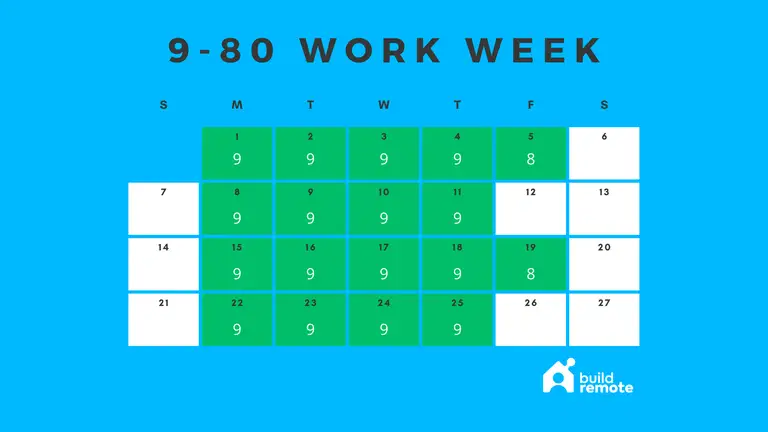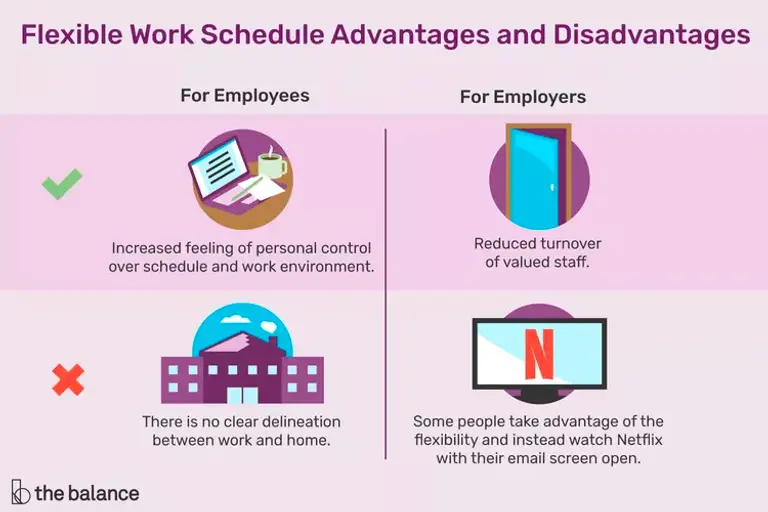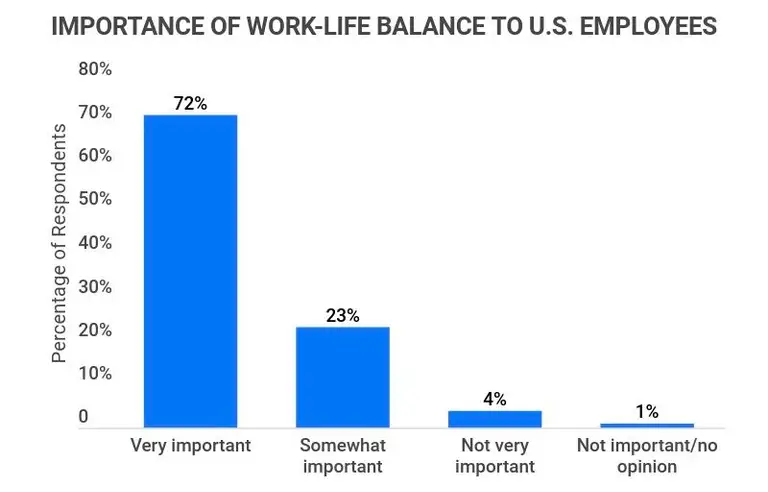The traditional 9-5 working hours are still the most common setup for companies around the world in 2023. However, it is far from the only choice you have. In fact, many companies are experimenting with shorter hours and 4-day work weeks.
You may have also heard about the 9/80 work schedule. While similar to your standard 9-5 setup, it brings a host of benefits for the employer and the employee. Today, we’ll show you what this schedule is, how to use it, the pros and cons, and practical examples of how to use it in the workplace.
What is the 9/80 work schedule?
A 9/80 work schedule is a setup where employees work 80 hours in two weeks. Only instead of ten days, they work those 80 hours in nine days. Effectively, that means that every two weeks, employees work eight days with nine hour days instead of ten regular days, so that they can get an extra day off.

This type of work schedule allows employees to get an extended weekend or an extra day off when they need it. They have the same number of work hours, just distributed differently, effectively getting an extra day of free time every two weeks - or two days per month.
Usually, companies set it up so they work eight nine hour days and one day with one eight hour day in the second week. However, you can make adjustments to create a fully flexible work schedule.
How does the 9/80 work schedule work in a typical job?
The beauty of the 9/80 work schedule is that you can set it up according to your own business needs. Some businesses and roles need round-the-clock coverage (think customer support) so they can adjust the work schedule to their customers’ needs.
Here is an example: your team can work nine hours per day for a full first week (Monday-Friday) and a part of the second week (Monday-Wednesday), which is nine hours x 8 days = 72 hours. Then on the remaining Thursday, your team can work a standard shift of eight hours, adding up to 80 hours. Friday is then free for everyone.
The aim is for the first week to be a bit tougher while the second week is easier on everyone and leads into three day week ends.
Of course, you could make changes and variations based on how your business is set up, but this is the basic principle. For example, you could split up the eight hour day into two shifts of four hours.
The pros and cons of a 9/80 work schedule
While this work setup can be amazing for some workplaces and employees, it could also be impossible for others. There are some general pros and cons to keep in mind
Pro: More flexibility
Have you ever tried to do a bank run on a Tuesday at 1 PM? Not in most workplaces. With a 9/80 work schedule, employees get the flexibility they need as they have two extra days every month where they can do things they otherwise could not. This flexible schedule can be a lifesaver for some employees.

Pro: More time off
Technically, it’s the same number of hours compared to a 9-5 work schedule. However, this setup entails more time off in bulk - at once. By giving up an extra hour of work four days a week, you get an entire day of free time every other week. The first week might be a bit more stressful but you can change this two week schedule according to your needs and priorities.
Pro: Better work-life balance
With a 9/80 setup, your employees get one extra day to rest every other week. Technically, this means a three day weekend two times every month. This is extra time they can use to run errands, spend time with family or friends, or do anything else that fulfills them in their personal lives. And when you do have an eight hour day, you can split it up into two blocks of four hours with a break in between.

Pro: Potentially attracting new hires
There are potential candidates out there who would consider this flexible scheduling as a perk. You can use it to attract long distance commuters who will definitely appreciate travelling less for two days per month. This alternative work schedule may also attract people who need more days to conduct personal business over the work week.
Con: More downtime for your business
Such a schedule does not work for every business. In fact, if you run a small business and you don’t have a lot of staff, you’ll struggle to find enough people to cover different shifts. Moreover, some industries (such as hospitality) cannot function with a day off for the entire company and need someone to be present around the clock.
Con: Potential abuse
Some employees can purposely start their day later so they can clock out later and reap the benefits of this work schedule without putting in the extra work. To find out who is doing this (and if anyone is doing it at all), use a time tracker such as Unrubble to log employee hours.
Con: Longer workdays
One extra hour per day may not sound like a big deal, but that time compounds during the week and month. Some employees may not be accustomed to the extra workload and will find it difficult to cope with more than eight hours of work per day. In the end, not everyone will be a fan of five or four nine hour days as they may hurt their work life balance. Also, employee productivity may suffer.
How to determine if the 9/80 work schedule is a good fit for your business
Before going head-first into adopting this type of workschedule, it’s worth making sure that it will work out for your business and employees. Here are the steps to go through before introducing a new compressed work schedule.
Analyze your existing work schedule
Does your team work in shifts? How many time zones do you need to cover? Do you typically have employees who want to take overtime?
Take all of these aspects into consideration because it may not be realistically possible to introduce a 9/80 work schedule. For example, if you have a walk-in business, it may not be doable to have an entire day when no one is present at the office.
Consult your employees
Just because you as the manager think that the 9/90 work schedule is going to be a blessing, it does not necessarily mean that your employees share your opinion. Get buy-in from your employees before you introduce anything officially and give everyone the right to vote.
Some employees may not like the idea of working longer hours, others would prefer the regular work cadence and some just don’t need the extra day off. Ask before you assume.
Determine a fixed day off for better work life balance
If you let everyone pick the day when they can be off work, chaos will ensue very quickly. Instead of tracking individual days off for each employee, make sure to assign one day when everyone in the company can be off, once every two weeks. It will make it easier both for your employees and your customers.
Do a test run
Before committing yourself to work nine hour days, make sure to test it out for a while to see if it works for your team. An initial two-week time slot should be enough for everyone to get a feel for what it would look like. Who knows, maybe your team actually loves the idea, or they can’t imagine anything other than an eight hour day.
Implement an official policy for your entire business
Don’t leave anything up to chance. If you’re switching from the regular 9-5 hours to 9/80, make sure to have this policy documented in employment contracts to protect yourself and your employees. And perhaps more importantly, make sure that the same policy applies for everyone. Otherwise, you’re sure to run into abuse from both sides.
Conclusion
The 9-5 work schedule has been around for almost 200 years and maybe it’s time that we say goodbye to it. The 9/80 work schedule offers a few perks that are hard to ignore and with some small preparation, you too can use it to get an extra day off for your entire business.
And to make sure that no one is bending the rules and that the adaptation period goes smoothly, track your time! With Unrubble, you can set up time tracking for everyone, no matter if they’re remote, in an office, or doing a hybrid mix of both.
Start tracking your team’s time today for more efficiency, happier teammates, and customers. Sign up for your free trial to get started!
Frequently asked questions
Is 9/80 better than a 9-5 work schedule?
It’s completely individual and depends on the employee, the business and the workload. There is no definitive answer here and you won’t know until you’ve tried both. There are undeniable advantages though, such as the improved work life balance that comes with a three day weekend.
What is the biggest problem with implementing a 9/80 work schedule?
Once again, it depends on your team. However, most companies have issues with payroll, sick leave, overtime wages and other legalities. Most countries have their laws set up around 40-hour work weeks, and the same goes for accounting and payroll software.
Can I introduce a 9/80 work schedule if I can’t close offices for an entire day?
Absolutely. All you need to do is introduce shift work so that your employees rotate. You’re going to have to work two Fridays in a month (as per our example), so make sure to introduce alternative work schedules and shifts so that someone is present every Friday of the month.
Are there any cost savings with this work schedule?
Yes. The employees will have to do less commuting and save on transportation fees compared to a fixed schedule with an eight hour workday. At the same time, you’ll have lower costs for utilities as there is no one present in your offices for two days per month.








